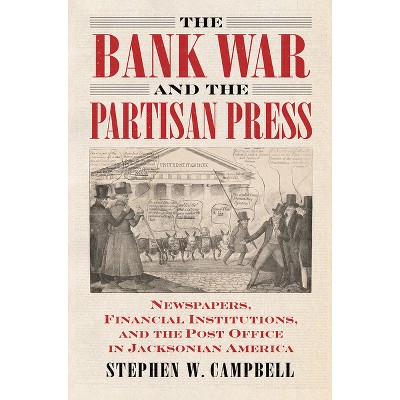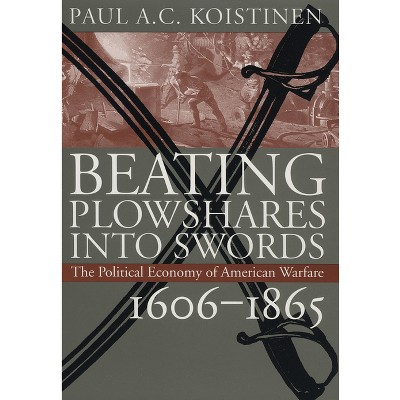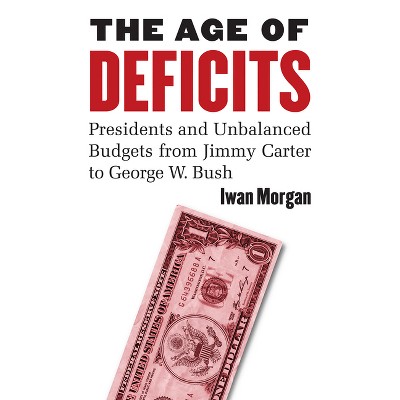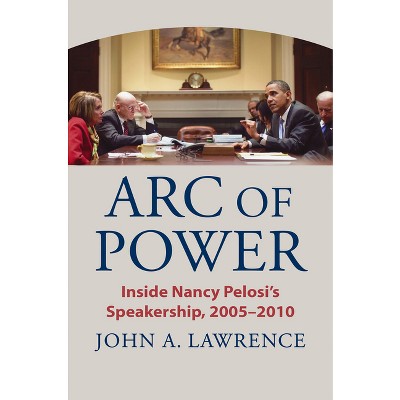About this item
Highlights
- America's political history is a fascinating paradox.
- Author(s): Ballard C Campbell
- 392 Pages
- History, United States
Description
About the Book
The first book to integrate urban, state, and national governments to present a composite portrait of how governance evolved in America.Book Synopsis
America's political history is a fascinating paradox. The United States was born with the admonition that government posed a threat to liberty. This apprehension became the foundation of the nation's civic ideology and was embedded in its constitutional structure. Yet the history of public life in the United States records the emergence of an enormously powerful national state during the nineteenth century. By 1920, the United States was arguably the most powerful country in the world. In The Paradox of Power Ballard C. Campbell traces this evolution and offers an explanation for how it occurred. Campbell argues that the state in America is rooted in the country's colonial experience and analyzes the evidence for this by reviewing governance at all levels of the American polity--local, state, and national--between 1754 and 1920. Campbell poses five critical causal references: war, geography, economic development, culture and identity (including citizenship and nationalism), and political capacity. This last factor embraces law and constitutionalism, administration, and political parties. The Paradox of Power makes a major contribution to our understanding of American statebuilding by emphasizing the fundamental role of local and state governance to successfully integrate urban, state, and national governments to create a composite and comprehensive portrait of how governance evolved in America.Review Quotes
"Writing in prose that is sophisticated but remains accessible, Campbell eschews the risk of deploying either the jargon or the narrow debates that too often encumber the discussion of statebuilding. The result is a book that situates statebuilding front and center in the American experience, with a clarity of argument that is both thought-provoking and compelling."--Journal of Southern History
"This is a solid, thorough work that should continue to inform the field of nineteenth-century political history for some time."--H-Net Reviews
"The myth of a weak American state in the eighteenth and nineteenth centuries is resilient and persistent despite a deep and distinguished scholarly effort to dislodge it. In this accessibly written book, Ballard Campbell draws on this literature, including his own important contributions to it, to make a compelling argument about the power of American government at all levels and why the myth has been hard to shake. Both scholars and general readers will profit from engaging with Campbell's book."--Paula Baker, associate professor of history, Ohio State University
"Synthesizing wide-ranging scholarship, Campbell traces the evolution of governance and the growth of the state in the United States during the long nineteenth century. He posits a paradox between the limited-government antistatist ideology prevalent throughout American history and the inexorable growth in the power, scope, and expense of government at all levels. He argues that the expansion of government found increasing public acceptance because of a growing perception of government's role in remedying problems arising from either crises or long-term economic and social change. Campbell's expertise in the history of state and local governance adds a dimension to the story that other scholars often overlook."--Charles W. Calhoun, author of The Presidency of Ulysses S. Grant
"Despite a pronounced antistatist tradition in the United States, the state grew in functional scope, financial commitment, capacity, and power during the long nineteenth century. In this engaging and accessible book, historians, political scientists, and general readers are offered a rich and careful examination of the growth of governance not only at the national level but also, crucially, at the municipal and state levels. Looking at the major engines of statebuilding, Campbell finds that most decisions to use governmental power were practical actions undertaken in response to problems and demands, which built public acceptance of civic interventions."--Carol Nackenoff, Richter Professor of Political Science, Swarthmore College, and coauthor of American by Birth: Wong Kim Ark and the Battle for Citizenship
Shipping details
Return details
Trending Non-Fiction












